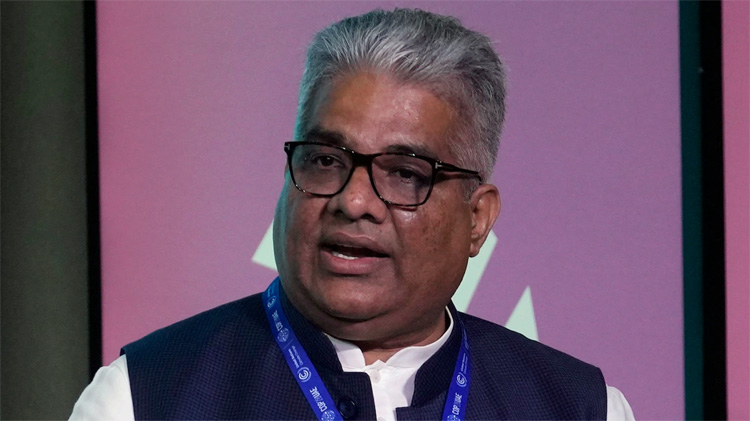Let us clearly define climate finance, says India at COP28 meet
Questioning the claims of the developed countries that they had finally mobilised US$ 100 billion in climate finance last year, India Friday called all countries to agree on a common framework for defining what exactly constituted climate finance.
“The lack of definition (of climate finance) leads to a lack of trust and transparency on a matter that should be as clear as crystal,” India’s Environment Minister Bhupender Yadav said at a minister-level meeting at COP28 climate conference here.
“The definition of climate finance that takes into account climate specificity, new and additional flows and grant-based and resources at highly concessional terms is imperative… I strongly feel that it is the most fundamental outcome we all can aim for that will automatically lay out the pathways for subsequent action towards appropriate climate financing,” Yadav said.
He also pointed out that while the annual OECD report on finance flows in 2020 had claimed that US$ 83 billion had been mobilised, an Oxfam report had shown that not more than US$ 25 billion could be categorised as climate finance.
The UN Framework Convention on Climate Change, and the 2015 Paris Agreement, ask developed countries to provide money to the developing world to help it take climate actions.
Article 4.3 of the Convention, and several other documents from climate change conferences, specify that this money should be “new and additional”.
Though none of these documents clearly define “new and additional”, it is generally understood that existing financial flows, like aid, could not be reclassified as climate finance.
Developing countries have also been demanding that a large part of climate finance should be in the form of grants or concessional loans, and not simply as loans on existing market rates.
In white papers published a few years ago, India’s Department of Economic Affairs has also shown that the amounts claimed by the developed countries to have been mobilised in climate finance was highly exaggerated if these criteria were applied, and double counting avoided.
Adequate financial resources remains the biggest hurdle to more effective climate action, particularly for adaptation in the developing countries.
Even if the claim of the developed countries of having mobilised US$ 100 billion was correct, it pales into insignificance in front of the scale of the financial resources currently needed, which, by most estimates, is in several trillions of dollars every year.
Yadav reiterated this in the meeting Friday, and said this was true in the case of technology as well, which too the developed countries are mandated to provide under the Convention and the Paris Agreement.

